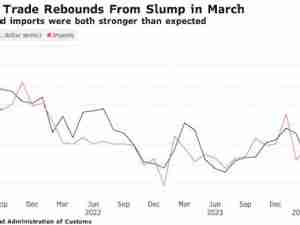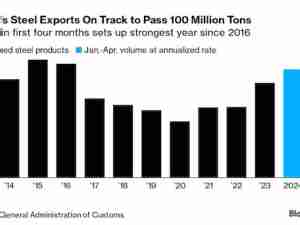President Donald Trump has entered what his predecessor called the “pen-and-phone” phase of his presidency, little more than a year into his first term.
Frustrated by a Congress that’s failed to act on his major campaign promises despite being controlled by his party, the president is leaning on his own executive authority to get things done. It’s a practice for which he and other Republicans criticized former President Barack Obama, who confronted the same problem after the GOP took over the House two years into his first term.
On Monday, Trump demanded that the Senate forbid filibusters—the “nuclear option”—in order to pass immigration legislation. The Twitter missive was an acknowledgment that the legislative branch is unlikely to accomplish much without an historic and exceedingly unlikely rules change.
Trump railed against lawmakers on March 30 after reluctantly signing a $1.3 trillion spending bill, describing it as “ridiculous” and vowing never to do it again. Yet it may be the last major legislation he signs before the November elections.
From his first days in the Oval Office, Trump employed the power of the presidential pen to crack down on immigration, weaken Obamacare, roll back regulations and withdraw from international agreements, including the Paris climate accord and the Trans-Pacific Partnership. Trump’s reliance on pen and phone enhances his starring role on the Washington stage and deprives antagonists of marquee moments in congressional floor fights. It also helps him maintain political momentum in the face of legislative gridlock.
Yet the approach risks undermining his long-term legacy because it is easy for future presidents to reverse their predecessors’ accomplishments with their own pen and phone, as Obama has found.
Surprising Predicament
It’s a surprising predicament for a first-term president whose party controls both houses of Congress and who campaigned on his deal-making prowess, said Andrew Rudalevige, a government professor at Bowdoin College and author of “The New Imperial Presidency: Renewing Presidential Power After Watergate.”
“Trump does have a Republican majority and in theory he could work with them toward his agenda,” he said. “But to the extent that he’s made, individually, a serious policy difference, it has been through these administrative actions.”
Instead of a major infrastructure law, the highlights of Trump’s second year in office are shaping up to be executive actions—tariffs; renegotiated trade deals; a potential landmark meeting with North Korea’s leader, Kim Jong Un; perhaps the unwinding of the Iran nuclear deal. None of that will require Congressional approval.
During his campaign, Trump pledged not to rely on executive authority, saying it typified failed leadership.
“I want to not use too many executive orders, folks,” Trump said during a March 2016 campaign event in Wisconsin. “Obama, because he couldn’t get anybody to agree with him, he starts signing them like they’re butter. So I want to do away with executive orders for the most part.”
Instead, he’s outpacing his predecessor, signing 57 executive orders during the first year of his presidency versus 40 Obama issued during the same period, according to a compilation maintained by the University of California at Santa Barbara’s American Presidency Project.
The White House did not respond to requests for comment about Trump’s use of executive authority.
Obama’s Pen
In 2014, after Democrats had lost control of the House and were about to lose the Senate, Obama kicked off a series of executive actions, telling Congress, “I’ve got a pen and I’ve got a phone.”
In the final years of his administration, Obama normalized relations with Cuba, secured the nuclear deal with Iran, completed trade negotiations with 11 Pacific Rim nations for the Trans-Pacific Partnership, unveiled executive actions shielding millions of undocumented immigrants from deportation and granted clemency to more than 1,200 prisoners. He also issued new regulations on everything from overtime to environmental standards.
Trump has unwound many of those initiatives using his own pen. But his legislative proposals on infrastructure, immigration, health care and other issues have mostly stalled in Congress. He has told confidants he’s frustrated by the lack of momentum in the months since he signed a tax overhaul into law.
With Republican majorities in Congress already shrinking after special election defeats that could portend steep losses in November, Trump has tried to further expand the power of his office.
Wall Funding
After lawmakers failed to provide sufficient financing for constructing a wall along the southern border, the president floated the idea of tapping the Defense Department’s budget to bypass legislative restrictions. Trump told House Speaker Paul Ryan during a meeting at the White House last week that the military’s budget could accommodate the wall, a person familiar with the matter said. He has also discussed the idea with Defense Secretary Jim Mattis, the Pentagon said.
He called on Congress to grant him line-item veto power on future spending bills, something that would require an amendment to the Constitution. His suggestion to use Pentagon funds for a border wall has few, if any, champions in Congress, where Republicans regularly complained that Obama overstepped his executive authority.
Rather than seek new legislation to ban so-called bump stocks that allow semi-automatic guns to fire more rapidly, Trump signed a presidential memorandum last month directing the Justice Department to outlaw the devices.
He’s considering a crackdown on Chinese investments in technologies deemed sensitive, again bypassing Congress by potentially invoking an obscure 1977 law reserved for national emergencies.
The approach fits the persona of a president who, despite boasts about his deal-making prowess, largely won office by casting himself as a “pugilistic” populist who would not allow the stagnant ways of Washington to deter him, said Barbara Perry, a presidential historian at the University of Virginia’s Miller Center of Public Affairs.
“His ability to point to the things he’s done unilaterally gives him the right to have this bravado about getting things done,” she said. “And maybe that’s all he needs to win re-election—if people don’t turn against him by saying ‘He said he was going to be a dealmaker but look, he’s not making deals.”’









